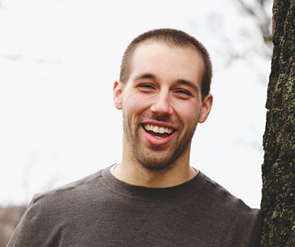
- Details
- By Native News Online Staff
The focus of tribal colleges’ work is to seek connections between the cultures and heritage of the Indigenous communities they serve and mainstream education curricula.
Danny Luecke (Choctaw Nation of Oklahoma), a member of the Teacher Education Department at Turtle Mountain Community College, and Dr. David Sanders (Oglala Sioux Tribe), vice president of research at the American Indian College Fund, explored the connections between math content, local culture, and the classroom.
While using an Indigenous research paradigm at Sitting Bull College, located on the Standing Rock Reservation, their work looks at how to connect language and culture in the tribal college math classroom and has contributed to a change in the theory of knowledge incorporated at tribal colleges and universities.
 Make A Donation Here
Make A Donation Here
Their resulting co-authored, peer-reviewed research paper titled “Dakota/Lakota Match Connections: an epistemological framework for teaching and learning mathematics with Indigenous communities and students,” was published in Frontiers in Education on July 27, 2023.
“My main thought was how to connect the TCU math classroom with language and culture. Most of us were taught math with the Western value of separation/abstraction (that is removing relationship) as the only and superior way to think mathematically. The myth that Western math is placeless, without culture, and contains all mathematical knowing is very prevalent, but does not align with the SBC mission statement that has D/Lakota language, culture, and values influencing every classroom, including the math class," Luecke said of his research and work at Sitting Bull College as a math teacher partnering with its immersion school,
Through conversations at Sitting Bull College with elders, language instructors, math instructors, and people in the community, Luecke said he found many examples of the connections between the Dakota/Lakota language and math. \
The research methodology Luecke and Sanders used incorporated the voices of community members, elders, Native speakers, and culture bearers. Around the same time, Luecke said he was doing work personally to learn what it means to be a member of the Choctaw Nation.
Luecke is the developer/instructor for the bachelor’s degree in Secondary Math Education at Turtle Mountain Community College. He is currently completing his Ph.D. in math and math education at North Dakota State University. His research focuses on Dakota/Lakota Math Connections at Sitting Bull College. He was born and raised in Fargo, North Dakota. In addition to his membership in the Choctaw Nation of Oklahoma, Luecke has ancestry from multiple European nations as well. He says he is honoring all his ancestors and the Creator through his life and work with the Standing Rock and Turtle Mountain communities. He has also written other articles about Indigenous math connections, including the forthcoming article "Dakota/Lakota Math Connections: Results from Developing a Community-based Math Resource" submitted for publication in 2024 in the Tribal College and University Research Journal, and “Ojibwe Math at Turtle Mountain Community College,” to be published in the Fall 2023 issue of Tribal College Journal. His forthcoming dissertation (December 2023) is titled “Dakota/Lakota Math Connections: Applying an Indigenous Research Paradigm to Research in Undergraduate Math Education.”
“Danny has taken up an important strand of practical research, applying an Indigenous methodological approach which requires Indigenous communities to be involved throughout the process. In Danny's work, community members have shaped, developed, and drive the connections between Western Mathematics, English, Dakota/Lakota Mathematics and the Dakota/Lakota languages while not privileging one over the other. Stemming from this work is the idea that mathematics can increase Dakota/Lakota language fluency and Dakota/Lakota languages can help increase mathematical conceptual understanding. In essence, the intersection of these four areas helps to demystify the subject of mathematics, with the understanding that all cultures use mathematics," Sanders said,
Cheryl Crazy Bull, President and CEO of the American Indian College Fund says making making cultural connections with teaching students leads to meaningful education for Native students.
“Naming our traditional knowledge and linking that knowledge with teaching and learning in our schools and homes is one of the ways that we ensure quality, meaningful education for our children. When scholars make those connections for us, we honor and appreciate that scholarship and the opportunity to share it with the broader educational community," Crazy Bull said.
More Stories Like This
Hanging a Red Dress for Christmas: MMIP, Native Higher Education, and Hope for a Better New YearNative Students Can Win $5,000 Scholarship, International Distribution in Pendleton Design Contest
American Indian College Fund Raises Alarm Over Plan to Shift Native Programs Away From the Dept. of Education
MacKenzie Scott Foundation Gives $5 Million Contribution to Little Priest Tribal College
Tribal Leaders Push Back on Dismantling of U.S. Department of Education
Help us defend tribal sovereignty.
At Native News Online, our mission is rooted in telling the stories that strengthen sovereignty and uplift Indigenous voices — not just at year’s end, but every single day.
Because of your generosity last year, we were able to keep our reporters on the ground in tribal communities, at national gatherings and in the halls of Congress — covering the issues that matter most to Indian Country: sovereignty, culture, education, health and economic opportunity.
That support sustained us through a tough year in 2025. Now, as we look to the year ahead, we need your help right now to ensure warrior journalism remains strong — reporting that defends tribal sovereignty, amplifies Native truth, and holds power accountable.
 The stakes couldn't be higher. Your support keeps Native voices heard, Native stories told and Native sovereignty defended.
The stakes couldn't be higher. Your support keeps Native voices heard, Native stories told and Native sovereignty defended.
Stand with Warrior Journalism today.
Levi Rickert (Potawatomi), Editor & Publisher

